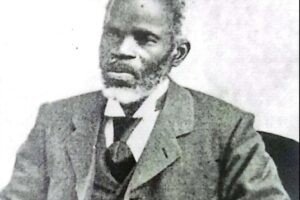Source: Africa Publicity
In the vibrant town of Lira, nestled in the heart of Uganda, lived a young boy named Kato. Kato was known for his bright smile and boundless energy. His mother, Mama Asha, always made sure he had fresh fruits and vegetables from their garden. Kato loved running through the fields and playing soccer with his friends, fueled by the nutritious meals Mama Asha prepared.
One day, a new shop opened in Lira, selling colorful packaged snacks and sugary drinks. The owner, Mr. Juma, was a friendly man who quickly became popular among the children. Kato and his friends, curious about the new shop, began to spend their pocket money on these enticing treats. At first, it seemed harmless—a soda here, a bag of chips there. But soon, Kato found himself craving these snacks more than Mama Asha’s wholesome meals.
As the months went by, Kato’s energy began to wane. He felt tired more often and found it difficult to concentrate in school. His soccer coach, Coach Bayo, noticed that Kato was not as quick on his feet as he used to be. Kato’s friends, too, seemed less interested in outdoor games, preferring to sit around and munch on their favorite snacks.
Meanwhile, in the bustling city of Lagos, Nigeria, a young girl named Amina faced a similar situation. Amina’s mother, Mama Tunde, was a talented cook who loved making traditional Nigerian dishes. Amina enjoyed helping her mother in the kitchen, learning the secrets of Jollof rice and pepper soup. However, Lagos was a city of fast food and convenience. With busy parents and long school hours, Amina often found herself eating burgers, fries, and sugary pastries.
Just like Kato, Amina began to notice changes in her body and mind. She gained weight, felt sluggish, and had trouble focusing in her classes. Her favorite dress no longer fit, and she found herself out of breath after climbing the stairs. Mama Tunde, concerned for her daughter, took Amina to see Dr. Ade, the local pediatrician. Dr. Ade explained that Amina’s unhealthy eating habits were affecting her health in many ways.
Back in Lira, Mama Asha also sought help for Kato. She visited Nurse Nabirye at the community health center. Nurse Nabirye, with her warm smile and gentle voice, explained to Mama Asha and Kato the importance of a balanced diet. She told them about the dangers of excessive sugar and fat, which can lead to obesity, diabetes, and heart disease. Nurse Nabirye emphasized the need for children to eat fruits, vegetables, whole grains, and lean proteins to grow strong and healthy.
In Cape Town, South Africa, a young boy named Themba found himself in a similar predicament. Themba loved visiting the local fast-food joint with his friends after school. They would indulge in greasy burgers, fried chicken, and ice cream. Themba’s father, Mr. Nkosi, noticed that his son was gaining weight and becoming less active. Concerned, Mr. Nkosi decided to take Themba on a hike up Table Mountain, hoping to inspire a love for physical activity.
As they climbed the mountain, Mr. Nkosi talked to Themba about the importance of healthy eating. He explained how poor nutrition could lead to serious health problems, not just now but in the future. Themba listened carefully, realizing that his favorite snacks were harming his body. He promised his father to make better food choices and become more active.
In the coastal town of Mombasa, Kenya, a young girl named Fatima experienced a similar awakening. Fatima loved the sweet pastries and sugary drinks sold at the local market. Her grandmother, Bibi Amina, who lived with them, often warned her about the dangers of too much sugar. One day, Fatima felt a sharp pain in her tooth. Bibi Amina took her to the dentist, Dr. Mwangi, who found several cavities. Dr. Mwangi explained that sugary foods were damaging her teeth and that she needed to brush regularly and eat healthier foods to prevent further problems.
Across Africa, in the Sahara Desert, a nomadic family faced different challenges. Young Adama, from the Tuareg tribe, loved the sweet tea his family prepared. However, the tea was loaded with sugar, and Adama consumed it several times a day. His father, Idir, noticed that Adama was becoming lethargic and less interested in their daily activities. When they visited the nearest town, Idir spoke to a health worker, who explained the impact of too much sugar on children’s health. Determined to help his son, Idir started to reduce the sugar in their tea and encouraged Adama to eat more dates and nuts.
Meanwhile, in Addis Ababa, Ethiopia, a young girl named Hana struggled with a different issue. Hana loved eating injera with spicy stews, but her favorite snacks were processed chips and candies sold by street vendors. Her mother, Mama Alem, noticed that Hana was often tired and complained of headaches. Worried, Mama Alem took Hana to see Dr. Bekele, a local nutritionist. Dr. Bekele explained that the processed snacks were lacking essential nutrients and were causing Hana’s energy levels to drop. He provided Mama Alem with a list of healthy snacks that Hana could enjoy, such as fruits, nuts, and homemade bread.
Through these stories from different corners of Africa, a common theme emerged: unhealthy eating was having a detrimental impact on the children’s health and well-being. From Lira to Lagos, Cape Town to Mombasa, the message was clear—children needed to make healthier food choices to avoid serious health issues like obesity, diabetes, heart disease, and dental problems.
The parents, teachers, and health workers in these communities worked tirelessly to educate the children about the importance of a balanced diet. They organized cooking classes, nutritional workshops, and community sports events to promote healthy living. The children, inspired by the care and concern of their elders, began to change their eating habits. They replaced sugary drinks with water, chose fruits over candies, and enjoyed traditional meals rich in nutrients.
Kato, Amina, Themba, Fatima, Adama, and Hana all learned valuable lessons about the importance of healthy eating. They realized that the choices they made today would impact their future health and happiness. With the support of their families and communities, they embraced a healthier lifestyle, ensuring a brighter and more vibrant future for themselves and the generations to come.
In the end, it wasn’t just about avoiding unhealthy foods; it was about understanding the value of nourishing their bodies with the right foods, staying active, and appreciating the wisdom of their elders. Through their journeys, these children became ambassadors of health, spreading the message of good nutrition across Africa, one meal at a time.
Have a press release, feature, article for publication? Send it to us via Whatsapp on +233543452542.



